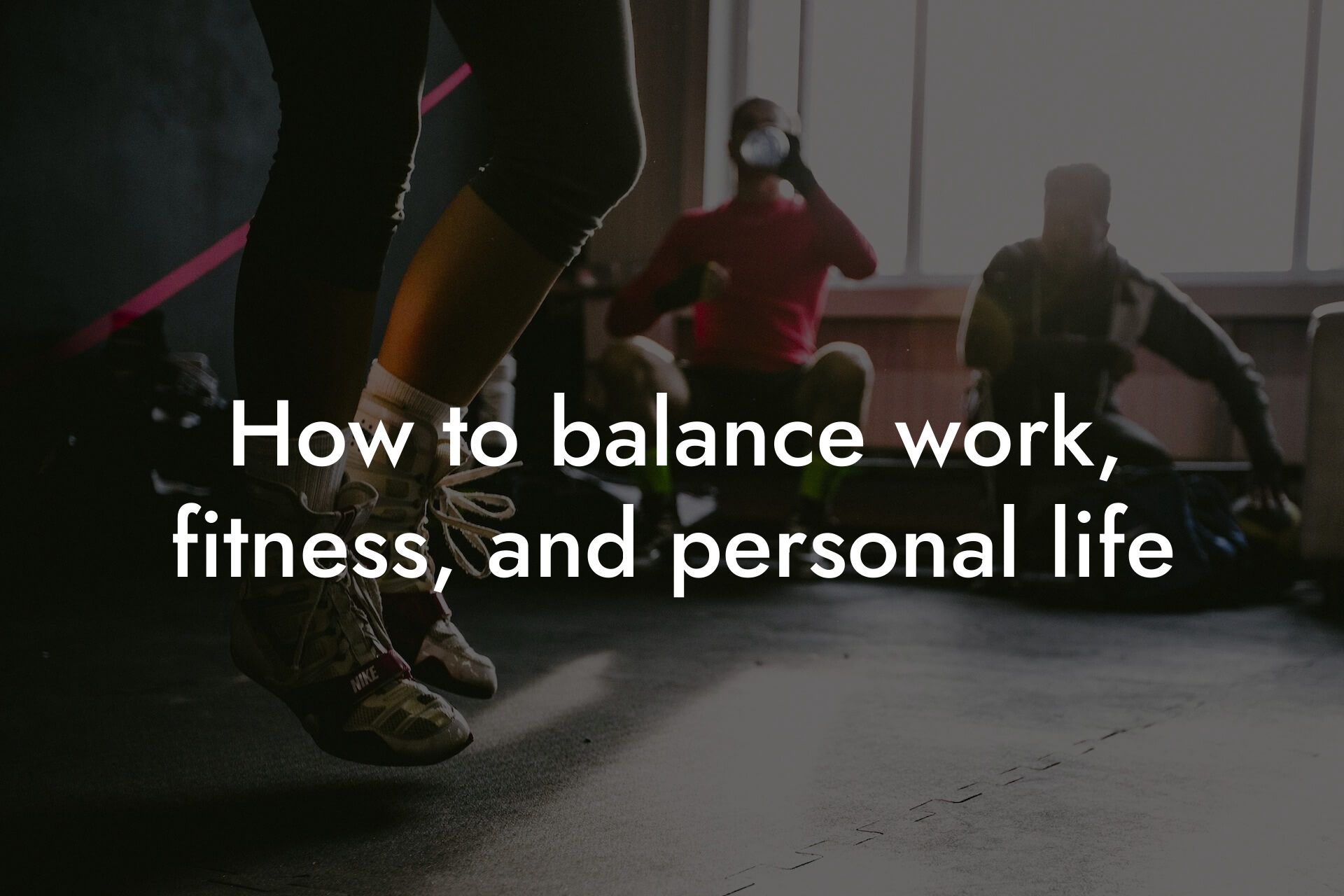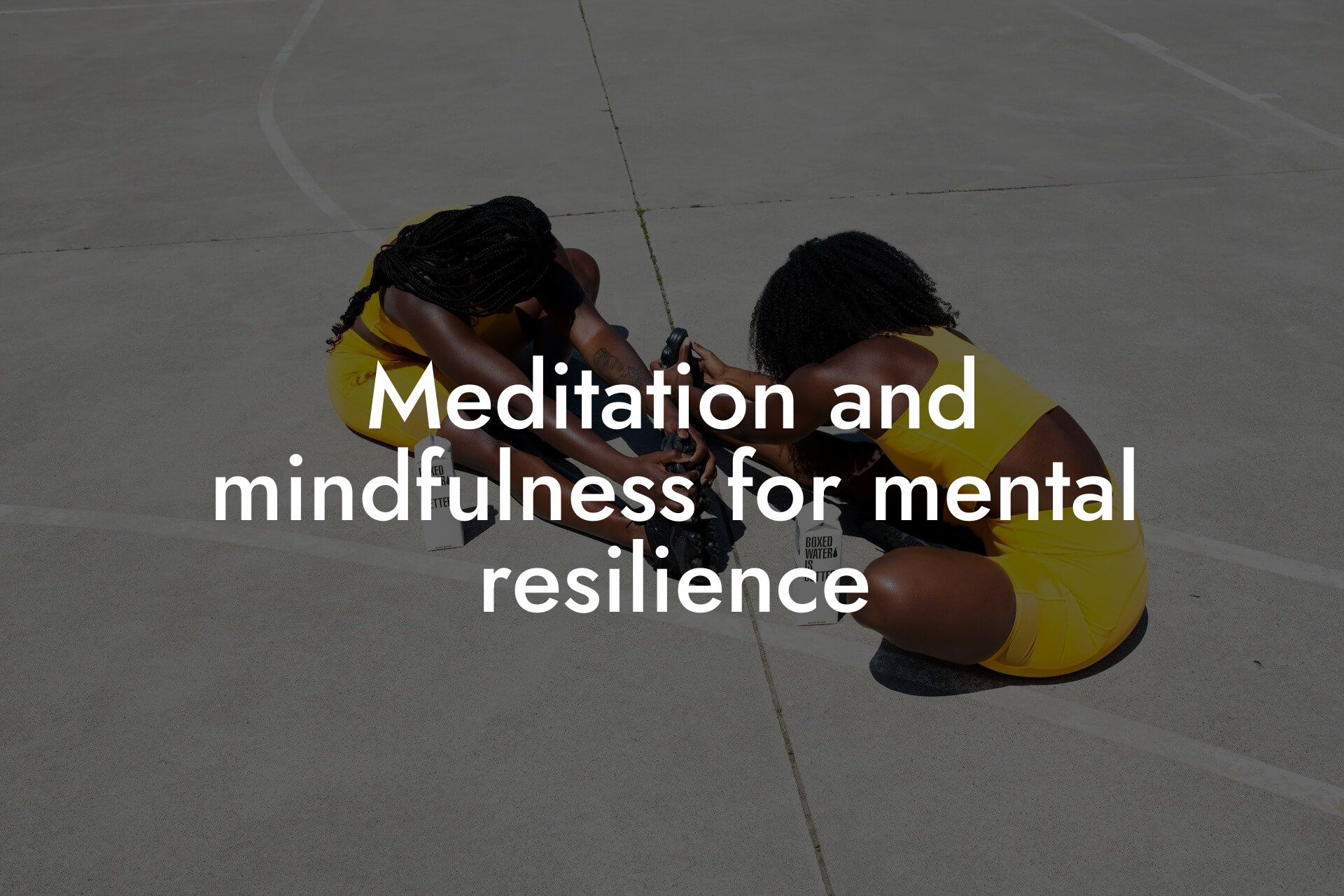As a high-earning professional, you're no stranger to the pressures of a demanding career. Between meeting deadlines, managing teams, and staying on top of industry trends, it's easy to feel overwhelmed and stressed out. Chronic stress can have serious consequences on your physical and mental health, including weight gain, decreased productivity, and a weakened immune system. That's why it's essential to prioritize stress management techniques that work for you.
Table of Contents
The Impact of Stress on Your Body
When you're stressed, your body's "fight or flight" response is triggered, releasing a surge of hormones like cortisol and adrenaline. While these hormones are designed to help you respond to immediate threats, chronic exposure can lead to a range of negative effects, including:
• Weight gain: Cortisol promotes fat storage, particularly around the midsection.
• Decreased muscle mass: Chronic stress can lead to muscle breakdown and reduced bone density.
• Impaired cognitive function: Stress can affect memory, concentration, and decision-making abilities.
• Weakened immune system: Chronic stress can suppress the immune system, making you more susceptible to illness and disease.
Identifying Your Stress Triggers
Before you can develop effective stress management techniques, it's essential to identify what triggers your stress. Take some time to reflect on your daily habits, relationships, and work environment. Ask yourself:
• What are the most common sources of stress in my life?
• How do I typically respond to stressful situations?
• Are there any patterns or habits that contribute to my stress levels?
Time Management Strategies for Reducing Stress
Effective time management is critical for reducing stress and increasing productivity. Try these strategies:
• Prioritize tasks: Focus on high-priority tasks first, and break them down into manageable chunks.
• Set realistic goals: Be realistic about what you can accomplish in a day, and avoid overcommitting.
• Take breaks: Take regular breaks to recharge and reduce burnout.
• Learn to say no: Be mindful of your workload and avoid taking on too much.
Physical Activity for Stress Relief
Regular physical activity is a powerful stress-reducer. Exercise can help:
• Reduce cortisol levels: Physical activity can help lower cortisol levels and improve mood.
• Improve sleep: Regular exercise can improve sleep quality and duration.
• Boost self-esteem: Exercise can enhance self-esteem and confidence.
• Increase productivity: Physical activity can improve focus and productivity.
Mindfulness and Meditation for Stress Management
Mindfulness and meditation are powerful tools for reducing stress and improving mental clarity. Try these techniques:
• Mindful breathing: Focus on your breath, and let go of distracting thoughts.
• Body scan: Lie down or sit comfortably, and bring awareness to each part of your body.
• Guided meditation: Use apps or guided recordings to lead you through meditation sessions.
• Mindful movement: Engage in physical activities like yoga or tai chi to cultivate mindfulness.
Nutrition and Stress Management
A healthy diet can play a critical role in stress management. Focus on whole, nutrient-dense foods, including:
• Leafy greens: Rich in folate, which can help reduce stress and anxiety.
• Omega-3 fatty acids: Found in fatty fish, nuts, and seeds, these healthy fats can reduce inflammation and improve mood.
• Complex carbohydrates: Whole grains, fruits, and vegetables can help regulate blood sugar and insulin levels.
• Probiotics: Support gut health with probiotic-rich foods like yogurt, kefir, and fermented vegetables.
Boundary Setting for Stress Reduction
Setting healthy boundaries is essential for reducing stress and improving work-life balance. Try these strategies:
• Establish clear expectations: Communicate your needs and expectations with colleagues, friends, and family.
• Learn to say no: Be mindful of your workload and avoid taking on too much.
• Prioritize self-care: Make time for activities that nourish your mind, body, and spirit.
• Set technology boundaries: Establish boundaries around work-related activities outside of work hours.
Stress management is critical for high-earning professionals like yourself. By identifying your stress triggers, implementing effective time management strategies, engaging in physical activity, practicing mindfulness and meditation, fueling your body with nutrient-dense foods, and setting healthy boundaries, you can reduce stress and improve your overall well-being. Remember, taking care of your physical and mental health is essential for achieving success in your career and personal life. At Tano Performance Group, we're committed to helping you achieve your goals through our comprehensive body assessment and personalized coaching services.
Frequently Asked Questions
What are the most common causes of stress in busy professionals?
As busy professionals, you're likely no stranger to stress. The most common causes of stress in your demographic include work-related pressures, tight deadlines, high expectations from colleagues and clients, lack of control over workload, and poor work-life balance. Additionally, personal factors such as financial concerns, relationship issues, and health problems can also contribute to stress levels.
How does stress affect my physical health?
Chronic stress can have a significant impact on your physical health, including increased blood pressure, heart rate, and cardiovascular disease risk. It can also lead to digestive problems, sleep disturbances, and a weakened immune system. Furthermore, stress can exacerbate existing health conditions, such as diabetes, hypertension, and obesity.
Can stress management techniques really make a difference?
Absolutely! Effective stress management techniques can help reduce feelings of anxiety and overwhelm, improve your mood, and enhance your overall well-being. By incorporating stress-reducing strategies into your daily routine, you can better cope with the demands of your busy professional life and maintain a healthy work-life balance.
What are some quick stress-reduction techniques I can use during the workday?
There are several quick stress-reduction techniques you can use during the workday, including deep breathing exercises, progressive muscle relaxation, and short meditation sessions. You can also try taking a short walk, stretching, or doing some quick yoga poses to help reduce tension and increase productivity.
How does exercise impact stress levels?
Regular exercise is a powerful stress-reducer! Physical activity can help reduce anxiety and depression symptoms, improve mood, and enhance sleep quality. Exercise also increases the production of endorphins, which are natural mood-boosters that can help alleviate stress and anxiety.
What role does nutrition play in stress management?
A healthy diet plays a critical role in stress management. A balanced diet that includes plenty of fruits, vegetables, whole grains, and lean protein sources can help support mental health and reduce stress levels. Avoid sugary and processed foods, which can exacerbate stress and anxiety.
How can I prioritize self-care as a busy professional?
Prioritizing self-care is essential for managing stress and maintaining overall well-being. Make time for activities that bring you joy and relaxation, such as reading, taking a relaxing bath, or practicing yoga or meditation. Schedule self-care activities into your daily planner, just as you would any other important task.
What are some common myths about stress management?
One common myth is that stress is a necessary part of being a successful professional. Another myth is that stress management is a luxury you can't afford. The truth is, effective stress management is essential for maintaining productivity, creativity, and overall well-being. It's not a luxury, it's a necessity!
How can I manage stress during peak periods, such as tax season or year-end?
During peak periods, it's essential to prioritize stress management techniques, such as deep breathing, exercise, and meditation. Break down large tasks into smaller, manageable chunks, and delegate tasks when possible. Also, make sure to take regular breaks and practice self-compassion when things get tough.
Can stress management techniques help me improve my relationships?
Yes, effective stress management can have a positive impact on your relationships! When you're less stressed, you're more likely to be patient, empathetic, and communicative with colleagues, clients, and loved ones. This can lead to stronger, more meaningful relationships and a more positive work environment.
How can I get my team on board with stress management initiatives?
Lead by example! Share your own stress management strategies with your team, and encourage them to do the same. Organize team-building activities that promote relaxation and stress reduction, such as yoga classes or meditation sessions. You can also provide access to stress management resources, such as online courses or wellness programs.
What are some common stress management mistakes that busy professionals make?
Common mistakes include neglecting self-care, overrelying on caffeine and sugar, and failing to prioritize relaxation and stress reduction. Another mistake is trying to tackle too much at once, leading to burnout and increased stress levels.
How can I make stress management a habit?
Make stress management a habit by incorporating it into your daily routine. Set reminders on your phone, schedule stress-reduction activities into your planner, and find an accountability partner to support you. Consistency is key, so start small and build up your stress management habits over time.
What are some stress management techniques that can be done at my desk?
There are several stress management techniques that can be done at your desk, including deep breathing exercises, shoulder rolls, and wrist extensions. You can also try doodling, listening to calming music, or doing some quick stretches to reduce tension and increase productivity.
How does stress impact my mental performance and focus?
Chronic stress can significantly impact your mental performance and focus. It can lead to decreased concentration, memory lapses, and reduced creativity. Effective stress management techniques can help improve cognitive function, boost focus, and enhance overall mental performance.
Can stress management techniques help me improve my sleep?
Absolutely! Stress management techniques, such as deep breathing, progressive muscle relaxation, and meditation, can help reduce stress and anxiety, leading to improved sleep quality. Establish a relaxing bedtime routine, avoid screens before bed, and create a sleep-conducive environment to further improve sleep.
How can I measure the effectiveness of my stress management techniques?
Track your progress by monitoring your stress levels, mood, and overall well-being. Use a stress journal or mobile app to record your stress levels, and take regular assessments to measure the effectiveness of your stress management techniques. Make adjustments as needed to optimize your stress management strategy.
What are some stress management resources available to busy professionals?
There are numerous stress management resources available to busy professionals, including online courses, wellness programs, and mobile apps. You can also consult with a mental health professional, join a stress management group, or seek support from a coach or mentor.
How can I incorporate stress management into my daily commute?
Use your daily commute as an opportunity to practice stress management techniques, such as deep breathing, meditation, or listening to calming music. You can also use this time to plan your day, set priorities, and reflect on your goals and values.
What are some stress management techniques that can be done with a team or group?
Team-based stress management techniques include group meditation, yoga classes, and team-building activities that promote relaxation and stress reduction. You can also organize group walks, volunteer opportunities, or social events that promote bonding and stress relief.
How can I prioritize stress management during the holiday season?
The holiday season can be a stressful time for busy professionals! Prioritize stress management by setting realistic expectations, delegating tasks, and taking regular breaks. Practice self-compassion, and make time for relaxation and stress-reduction activities, such as meditation, yoga, or reading.
What are some common signs of burnout, and how can I prevent it?
Common signs of burnout include chronic fatigue, cynicism, and reduced productivity. Prevent burnout by prioritizing self-care, setting realistic goals, and taking regular breaks. Learn to say "no" to excessive workload, and seek support from colleagues, mentors, or mental health professionals when needed.
How can I make stress management a part of my long-term wellness strategy?
Make stress management a part of your long-term wellness strategy by incorporating it into your daily routine, setting realistic goals, and tracking your progress. Continuously educate yourself on new stress management techniques, and seek support from professionals and peers when needed.
Here are some related articles you might love...
- How to balance work, fitness, and personal life
- Meditation and mindfulness for mental resilience
- How physical fitness impacts cognitive performance
- The impact of physical appearance on self-esteem
- Overcoming body dysmorphia
- Goal setting for physical and mental well-being
- How to stay motivated during your fitness journey
- The role of exercise in preventing burnout
- The connection between physical health and mental clarity
Zak Faulkner
Zak Faulkner is a leading authority in the realm of physical health and body composition analysis, with over 15 years of experience helping professionals optimise their fitness and well-being. As one the experts behind Tano Performance Group, Zak has dedicated his career to providing in-depth, science-backed insights that empower clients to elevate their physical performance and overall health.
With extensive knowledge of DEXA technology, Zak specializes in delivering comprehensive body assessments that offer precise data on body fat, muscle mass, bone density, and overall physique. His expertise enables individuals to make informed decisions and achieve their fitness goals with accuracy and confidence. Zak’s approach is rooted in a deep understanding of human physiology, combined with a passion for helping clients unlock their full potential through personalised strategies.
Over the years, Zak has earned a reputation for his commitment to excellence, precision, and client-focused service. His guidance is trusted by top professionals who demand the best when it comes to their health. Whether advising on fitness programs, nutritional strategies, or long-term wellness plans, Zak Faulkner’s insights are a valuable resource for anyone serious about taking their health and fitness to the next level.
At Tano Performance Group, Zak continues to lead our Content Team revolutionising how professionals approach their physical health, offering unparalleled expertise that drives real results.




